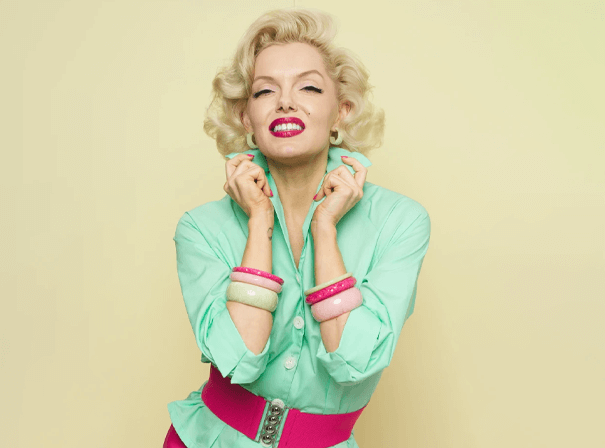
A Sputnik Meetup. I’d missed my last local meetup in Brum as I was inconveniently coming out of an unscheduled coma (another story), so I bit Jonny Mellor’s hand off at the chance to attend this gathering of artists at Bermondsey’s City Hope Church.
It turns out the folk in South East London represent many of the best things about Sputnik in microcosm. I’d never met anyone there before, but as we began to share our work we realised we’d discussed the realities of domestic violence, the incorporation of paganism into the Christian story, racial profiling in the performance arts and the emotional trauma of emerging from successive Covid lockdowns in a matter of minutes.
These aren’t conventional ice-breakers (unless you’re a Sputnik regular), but perhaps convey what we’re always going on about – that art possesses a unique ability to cross boundaries, break down taboos; to act as a language of translation. We got to hear and see some really good art, from poems and songs to installation pieces and a capella rap. City Hope’s Emily reflected on being an actor-musician, an actor whose physical performance incorporates the playing of their particular instrument – something I’d never heard of before.

After circle time we heard from this meetup’s featured artist, which is where the day diverged spectacularly from anything I’ve experienced with Sputnik before. Suzie Kennedy is an actor and stand-up performer who looks considerably like Marilyn Monroe. She has played Marilyn in films like Blade Runner 2049 and The Theory of Everything as well as television ads for Pepsi and After Eights. She has performed on stage both in the West End and Stateside and is leading a show in which she reflects on almost 25 years of embodying and living with the not inconsiderable legend of one of the 20th Century’s most famous and eulogised figures.
Suzie performed some of this show to us, including singing some of Marilyn’s most famous songs. Jonny got the infamous ‘Happy Birthday’ sung specifically for him, which was both hilarious and the most uncomfortable I have seen him in a long time. Suzie offered a fairly withering review of Kim Kardashian’s then-recent appearance at the Met Gala in one of Marilyn’s own gowns, as well as some terrifying insight on what it was like to be a Marilyn Monroe impersonator around people who actually knew her. “Wow, even your skin feels like hers,” said an (overly) friendly man at a memorial event, who it transpired had been Marilyn’s coroner. Yikes.
This was the most boundary-morphing Sputnik meetup I’d ever been to.
Things got even more meta than that. So striking is the resemblance that Suzie’s photograph has been accidentally used in place of Marilyn’s and she has even met people who have gotten tattoos of her face believing it was actually the Hollywood star.
But Suzie’s performance and her own reflections on her life and career went much further. As she swayed in a sequined dress in a Bermondsey Church (under an austere stone with an inscription dedicated to Charles Spurgeon) it struck me that in terms of the cultural class divide that permeates the entire lived experience of being British, this was the most boundary-morphing Sputnik meetup I’d ever been to.
Like most evangelical Western churches in general, the make-up of Sputnik gatherings are predominantly middle-class. The art tends to be conceptual and will usually reference some basis in an academic tradition. I think Jonny would probably recognise that most of our hip-hop, a definitely working-class artform, is on the cerebral end of that particular tradition.
Suzie’s performance clearly drew from the music hall/variety tradition that originated not all that far far from where we were meeting. It’s a particularly working-class heritage distinctive even to London, and through Suzie’s humour, honesty and craft it was an enormously powerful and effective means of exploring deep and weighty themes such as hyperreality and generational abuse, all whilst being significantly more accessible (and fun) than a good few white-cube installations I’ve seen in my time.
Despite looking almost exactly the same, Suzie Kennedy is obviously not Marilyn, something she playfully references in her performance, proudly reminding us on multiple occasions of her Streatham roots, seamlessly switching between Marilyn’s husk and her own Tower-Bridge-Cockney as well as offering some insight on how the neighbourhood’s herb gardens have evolved post-gentrification.
Paul Brown, the pastor of City Hope Church knows Suzie and interviewed her for the day’s event. It came as not too much of a surprise to learn that Paul had recently co-written a book on church and class called Invisible Divides on class, culture and barriers to belonging in the church.
Though I haven’t yet read the book (it’s on order), it was a joy and a blessed discomfort for me (despite 10 years in Erdington and the very best of intentions, I’m still a middle-class prude) to see that subverting these cultural barriers is something Paul and his church community are not just talking or writing about, but effectively embodying and practicing with a great amount of care and love – making good use of art’s power as a language of translation in the process. It was rare, precious and a significantly more transcendent glimpse of the age to come than I was ready to expect.
